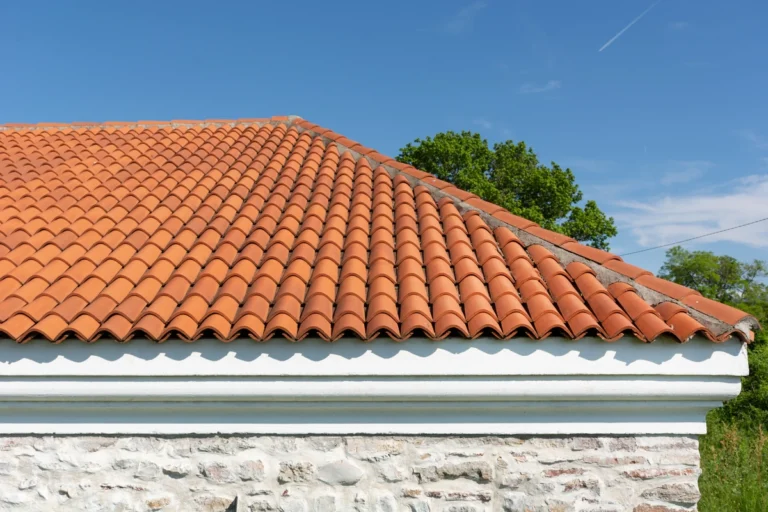When it comes to safeguarding your home, few things are as crucial as the integrity of your roof. A sturdy, well-maintained roof not only provides protection from the elements but also adds value to your property.
However, even the most meticulously constructed roofs can encounter issues over time. That’s where a roof warranty steps in as a vital safety net for homeowners. In today’s guide, we’ll delve into everything you need to know about roof warranties:
- What they are
- Why you need one
- The various types available
- Coverage details
- How to identify signs of potential roofing damage
Keep reading to become a roof warranty expert!
What is a Roof Warranty?

Simply put, a roof warranty is a contract between you and the manufacturer or installer of your roof that outlines the terms and conditions of coverage for specified periods. It serves as a guarantee that your roof will perform as promised within certain parameters. Roof warranties typically cover defects in materials and workmanship and may vary in duration and coverage depending on the type of warranty you choose.
Why You Need a Roof Warranty
Investing in a roof warranty is akin to purchasing peace of mind. Here’s why it’s essential:
- Protect Your Investment: A roof is one of the most significant investments you’ll make in your home. A warranty ensures that you won’t bear the full financial burden if unexpected issues arise.
- Quality Assurance: Reputable manufacturers and installers stand behind their products and workmanship with warranties, assuring you of the quality and reliability of your roof.
- Long-Term Security: With a warranty in place, you’re safeguarded against unforeseen expenses related to repairs or replacements, providing long-term financial security.
- Enhanced Property Value: Having a transferrable warranty can enhance your home’s resale value, as it demonstrates to potential buyers that the roof is protected.
4 Types of Roof Warranties
There are several types of roof warranties available, each offering varying levels of coverage and duration:
1) Manufacturer’s Warranty:
Provided by the manufacturer of the roofing materials, this warranty covers defects in the materials themselves, such as premature deterioration or failure.
2) Workmanship Warranty:
Issued by the roofing contractor, this warranty guarantees the quality of the installation work. It covers errors in installation that may lead to leaks or other issues.
3) System Warranty:
Some manufacturers offer comprehensive system warranties that cover both the materials and the installation, providing seamless protection for your entire roofing system.
4) Extended Warranty:
For added peace of mind, you can often purchase extended warranties that extend the coverage period beyond the standard warranty duration.
What Your Warranty Does and Doesn’t Cover

While roof warranties offer valuable protection, it’s essential to understand their limitations. Here’s what most warranties typically cover:
- Material Defects: Manufacturer warranties typically cover defects in the roofing materials, such as shingle granule loss, cracking, or manufacturing defects.
- Workmanship Errors: Workmanship warranties protect against errors made during the installation process, such as improper sealing or flashing, which can lead to leaks.
- Weather Damage: Some warranties include coverage for damage caused by severe weather events, such as wind or hail damage, depending on the terms and conditions.
- Transferability: Many warranties are transferable to subsequent homeowners, providing continued coverage and enhancing the resale value of the property.
However, it’s crucial to note what your warranty may not cover:
- Normal Wear and Tear: Warranties typically do not cover damage resulting from normal wear and tear over time, such as fading or minor deterioration.
- Improper Maintenance: Neglecting to perform regular roof maintenance, such as cleaning gutters or removing debris, may void your warranty.
- Acts of God: Some warranties exclude coverage for damage caused by natural disasters or “acts of God,” such as earthquakes, floods, or wildfires.
- Unapproved Modifications: Making unauthorized modifications to your roof, such as installing satellite dishes or solar panels without proper reinforcement, may void your warranty.
Signs of Roofing Damage to Watch Out For

Even with a warranty in place, it’s essential to monitor your roof regularly for signs of potential damage. Here are some common indicators that your roof may need attention:
- Leaks: Water stains on ceilings or walls, damp spots in the attic, or visible water penetration are signs of a leaky roof that requires immediate attention.
- Missing or Damaged Shingles: Inspect your roof for missing, cracked, or curled shingles, as these can compromise the integrity of your roof and lead to leaks.
- Sagging or Drooping Areas: Sagging or drooping sections of the roof may indicate structural issues or water damage and should be addressed promptly.
- Excessive Granule Loss: Check your gutters for an excessive buildup of granules, which can indicate deteriorating shingles and potential roof failure.
- Mold or Mildew Growth: The presence of mold or mildew on your roof or in your attic signifies excess moisture and poor ventilation, which can lead to significant damage if left unchecked.
- Damaged Flashing or Seals: Inspect the flashing around chimneys, vents, and skylights for signs of damage or deterioration, as compromised flashing can allow water to penetrate your roof.
- Clogged Gutters: Clogged gutters prevent proper drainage and can lead to water backup and roof damage, so be sure to clean them regularly.
By staying vigilant and addressing any potential issues promptly, you can maximize the lifespan of your roof and ensure that it continues to provide reliable protection for your home.
Learn More About a Roofing Contractor’s Workmanship Warranty
A roof warranty is a vital safeguard for homeowners, providing peace of mind, financial security, and protection for your most significant investment. By understanding the different types of warranties available, knowing what is covered (and what isn’t), and being vigilant for signs of potential roofing damage, you can make informed decisions to protect and maintain your roof for years to come.
Want to work with a roofing company that offers the best roofing warranty in town? Contact Trust Roofing today to get started!




